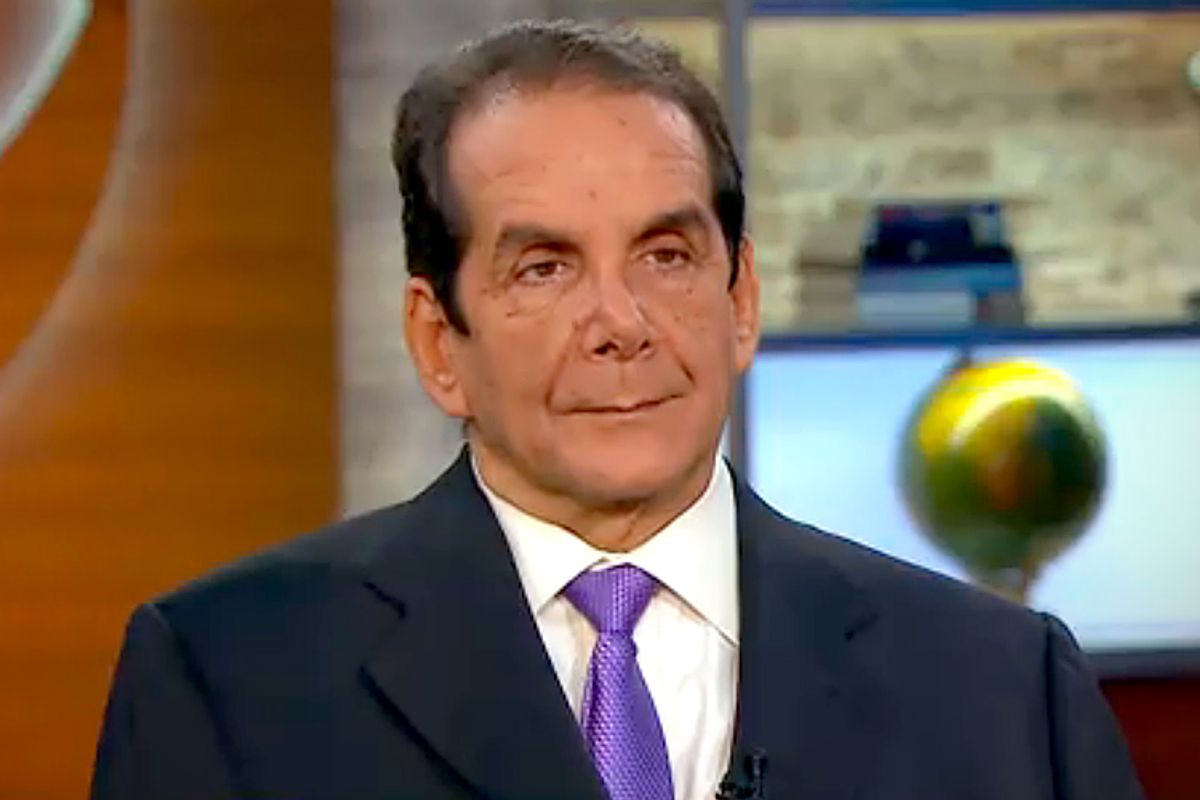There was a time, long ago, when Washington Post columnist Charles Krauthammer loathed “judicial activism.” In a 2003 column, Krauthammer extolled the virtue of “judicial minimalism” and inveighed against judges who promote chaos and endanger the very legitimacy of our system of government by invalidating the will of the legislature:
An even more important reason, however, is social peace. When you short-circuit the democratic process, you deprive a decision of legitimacy and prevent the stable social settlement of an issue. The genius of a pluralistic Madisonian democracy is that it allows the clash of factions in the legislature, working out messy settlements that, amended over time, allow for compromise and give even the losers a sense of having played the game and of having another chance next time around. All of this is lost when an issue is foreclosed by judicial fiat.
Back when Krauthammer wrote that, there was a Republican president in office and Republicans controlled both houses of Congress, so obviously he didn’t want to see the good and virtuous work of Republican legislating fall victim to some judge’s activist agenda. Now that we’re in the latter stages of the Obama epoch and a good portion of the president’s Democratic agenda has been legislated into place, Krauthammer has had a change of heart.
The Affordable Care Act, in Krauthammer’s estimation, is living on borrowed time, and will almost certainly be torpedoed by the Supreme Court. He writes today in the Washington Post:
One bit of ACA lawlessness, however, may prove a bridge too far. The administration has been giving subsidies to those who sign up through the federal exchange. The ACA limits subsidies to plans on the state exchanges.
This case will reach the Supreme Court. It is hard to see how the court could do anything other than overturn the federal-exchange subsidies. The court might even have a word to say about the administration’s 22 (or is it 37?) other acts of post-facto rewriting of the ACA.
Perhaps. But until then, the imperial president rules.
Krauthammer is referring to a last-ditch legal challenge to the Affordable Care Act that looks to invalidate the subsidies people receive for buying health insurance through the federal exchange. According to the plaintiffs in the case, the Affordable Care Act contains language authorizing the government to offer subsidies through the state-based exchanges, but no language explicitly authorizing it to do the same for the federal exchange. This omission was intentional, they argue, and was meant to incentivize states to create their own exchanges. Opponents argue that this is insane, and that the full text of the legislation clearly assumes the authority to offer subsidies on the federal exchange.
Most everyone seems to agree that this is a long-shot argument with a shaky legal foundation, and it’s already been shot down by judges who've heard the case. The availability of subsidies on the federal exchange is absolutely critical to the success of the law, so the plaintiffs are essentially arguing that the drafters of the bill purposefully tucked a time bomb into their own legislation. The success of the challenge ultimately rests on the willingness of one or more conservative judges to put ideology ahead of sound legal reasoning -- something that very well could happen for the simple reason that it happens all the time.
This is what Krauthammer is explicitly rooting for. Indeed, he seems to view it as inevitable. He’s assuming that the Supreme Court will embrace this conservative legal theory and undo a law that was duly approved by the democratically elected legislature and survived repeated legislative and legal attempts to invalidate it. And he’s perfectly fine with the demise of the law causing widespread chaos as hundreds of thousands of newly insured Americans suddenly find themselves unable to afford their health coverage.
That’s precisely the sort of anti-democratic disruption to “social peace” that he railed against back in 2003. It’s amazing what a Democratic presidency can do to a conservative pundit’s view of the role of the courts in our society.



Shares